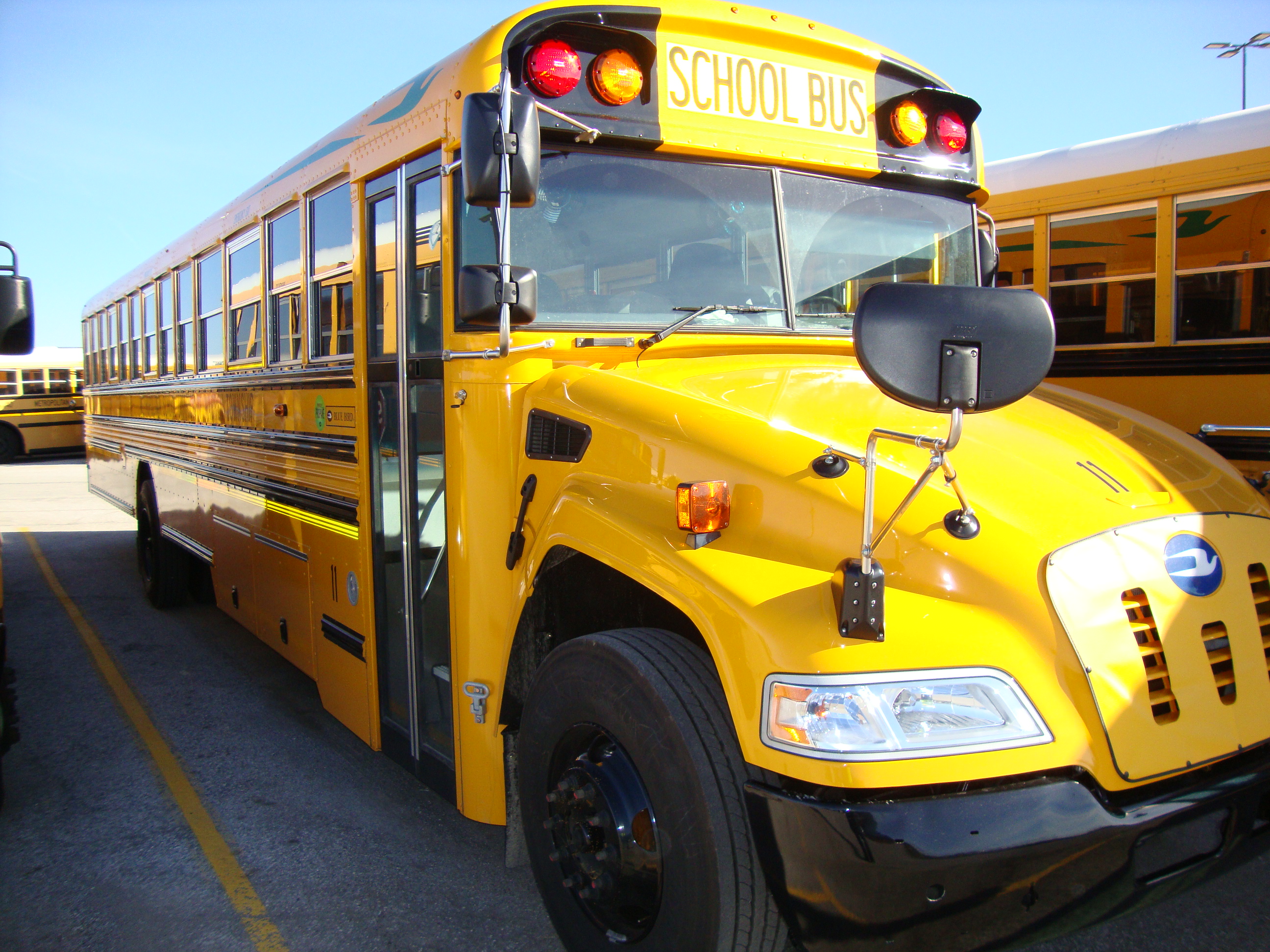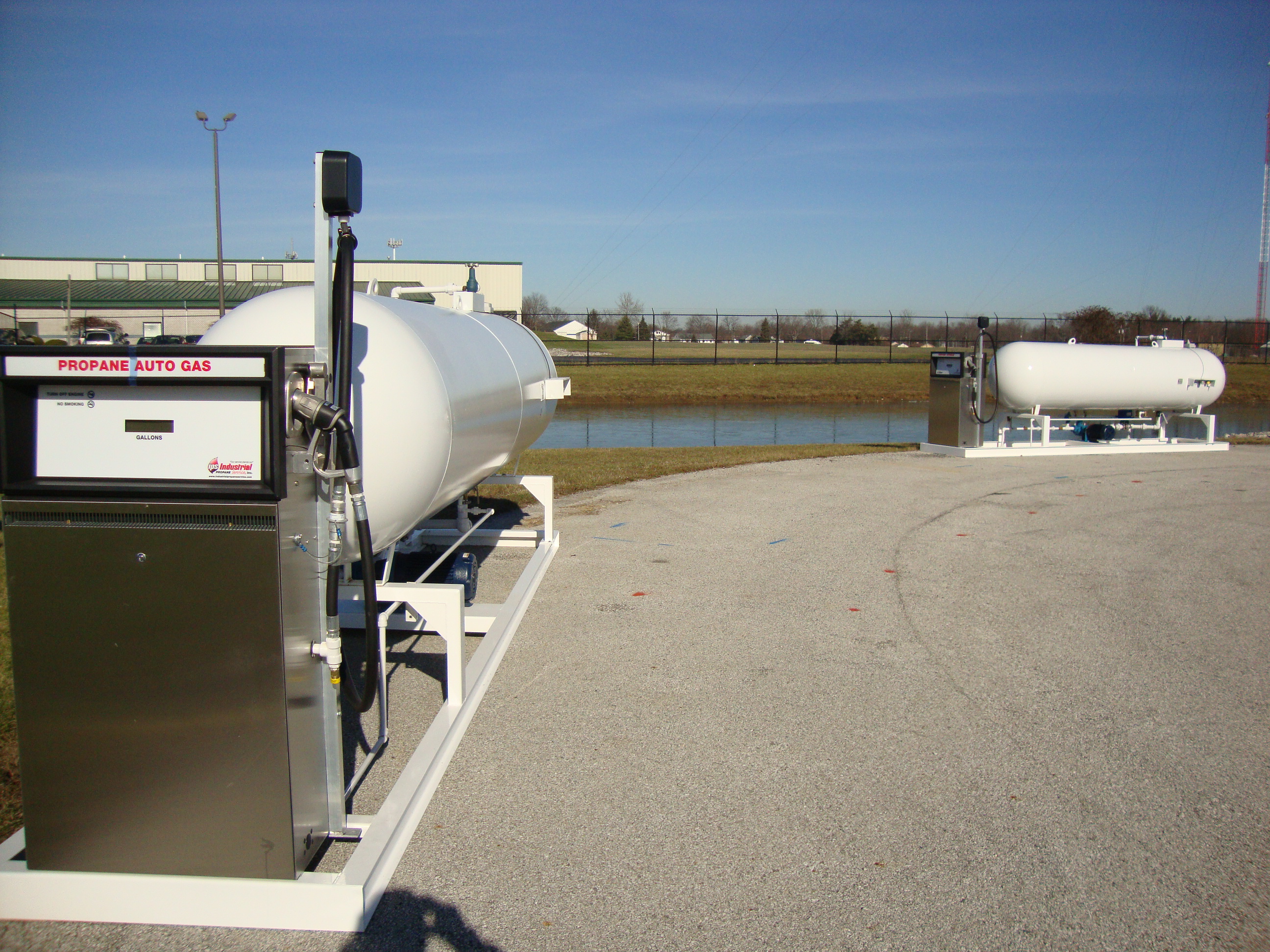Thursday, January 14, 2016
INDIANAPOLIS (Jan. 14, 2016) — Indiana’s largest fleet of propane autogas school buses deploys
in Warren Township this month. Eleven alternatively fueled school buses will roll out in January for the Metropolitan School District of Warren Township. The fleet represents the largest deployment of propane autogas school buses in the state of Indiana. 
The Blue Bird Propane Vision buses, purchased through dealer MacAllister Transportation, include ten 78-passenger models, and one bus outfitted with a wheelchair lift.
“Better cold weather starts, lower maintenance and fuel cost, quieter buses, as well as better air quality for students, the bus driver and our community were the reasons we chose propane autogas,” said Steve Smith, director of transportation for M.S.D. Warren Township. “With the fuel’s clean operation, we anticipate longer maintenance intervals and lower periodic maintenance cost.”
The new Blue Bird Propane Vision buses replace older diesel models. A propane autogas fuel system manufactured by ROUSH CleanTech powers each bus.
Historically, propane autogas costs about 50 percent less than diesel per gallon and reduces maintenance costs due to its clean-operating properties. To fuel the buses, M.S.D. Warren Township installed two onsite autogas fuel stations with 1,000-gallon capacity each. “Our drivers will feel more confident taking the longer routes and field trips by having fuel conveniently located and available around the clock,” Smith said.
“M.S.D. Warren Township joins over 500 other districts nationwide experiencing the benefits of propane autogas technology: lowering operating costs, maintenance costs and emissions,” said Brian Carney, group account director for ROUSH CleanTech.
The fleet of propane autogas buses will reduce nitrogen oxide emissions by over 13,600 pounds and particulate matter by about 350 pounds each year compared with the diesel buses they replaced.
“Blue Bird provides innovative and cost-effective green transportation solutions for its school district customers,” said Phil Horlock, president and CEO of Blue Bird. “Through its research, M.S.D. Warren Township determined that propane autogas was the best choice for reducing fuel and maintenance costs while providing cleaner air for the community.”

The Blue Bird Propane Vision buses, purchased through dealer MacAllister Transportation, include ten 78-passenger models, and one bus outfitted with a wheelchair lift.
“Better cold weather starts, lower maintenance and fuel cost, quieter buses, as well as better air quality for students, the bus driver and our community were the reasons we chose propane autogas,” said Steve Smith, director of transportation for M.S.D. Warren Township. “With the fuel’s clean operation, we anticipate longer maintenance intervals and lower periodic maintenance cost.”
The new Blue Bird Propane Vision buses replace older diesel models. A propane autogas fuel system manufactured by ROUSH CleanTech powers each bus.
Historically, propane autogas costs about 50 percent less than diesel per gallon and reduces maintenance costs due to its clean-operating properties. To fuel the buses, M.S.D. Warren Township installed two onsite autogas fuel stations with 1,000-gallon capacity each. “Our drivers will feel more confident taking the longer routes and field trips by having fuel conveniently located and available around the clock,” Smith said.
“M.S.D. Warren Township joins over 500 other districts nationwide experiencing the benefits of propane autogas technology: lowering operating costs, maintenance costs and emissions,” said Brian Carney, group account director for ROUSH CleanTech.
The fleet of propane autogas buses will reduce nitrogen oxide emissions by over 13,600 pounds and particulate matter by about 350 pounds each year compared with the diesel buses they replaced.

“Blue Bird provides innovative and cost-effective green transportation solutions for its school district customers,” said Phil Horlock, president and CEO of Blue Bird. “Through its research, M.S.D. Warren Township determined that propane autogas was the best choice for reducing fuel and maintenance costs while providing cleaner air for the community.”

